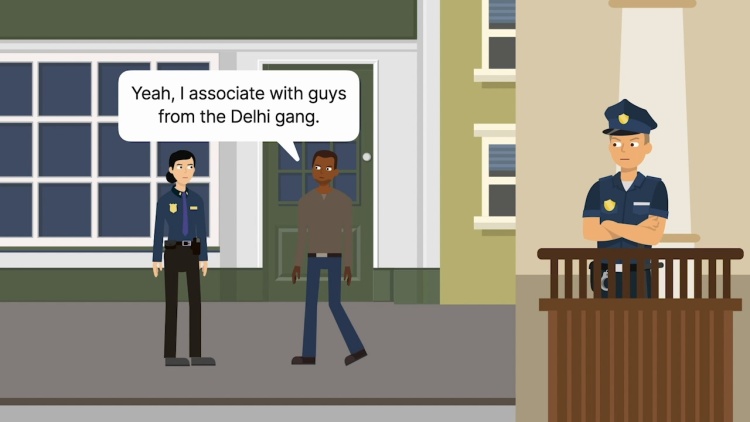People v. Sanchez
California Supreme Court
63 Cal. 4th 665, 204 Cal. Rptr. 3d 102, 374 P.3d 320 (2016)
- Written by Abby Roughton, JD
Facts
Marcos Sanchez (defendant) was charged with gun, drug, and gang-related offenses. To prove that Sanchez was affiliated with a street gang, the State of California (plaintiff) called police detective David Stow to testify at trial as a gang expert. Stow told the jury about the contents of various notices and identification cards that were kept in a state gang database. The notices contained statements from other officers about their interactions with Sanchez and statements from Sanchez himself about his association with the gang. Sanchez objected to Stow’s testimony, arguing that Stow’s discussion of the out-of-court statements violated both the evidentiary rules prohibiting hearsay and the Confrontation Clause of the Sixth Amendment. The state argued that the statements were not hearsay because they were offered only to show the basis for Stow’s expert opinion and not for the truth of the matter contained in the statements. The trial court allowed the testimony. The jury convicted Sanchez, and he received a penalty enhancement based on his gang activity. Sanchez appealed his conviction. The appellate court reversed the conviction on one offense but otherwise affirmed, and Sanchez appealed to the California Supreme Court.
Rule of Law
Issue
Holding and Reasoning (Corrigan, J.)
What to do next…
Here's why 907,000 law students have relied on our case briefs:
- Written by law professors and practitioners, not other law students. 47,100 briefs, keyed to 996 casebooks. Top-notch customer support.
- The right amount of information, includes the facts, issues, rule of law, holding and reasoning, and any concurrences and dissents.
- Access in your classes, works on your mobile and tablet. Massive library of related video lessons and high quality multiple-choice questions.
- Easy to use, uniform format for every case brief. Written in plain English, not in legalese. Our briefs summarize and simplify; they don’t just repeat the court’s language.








